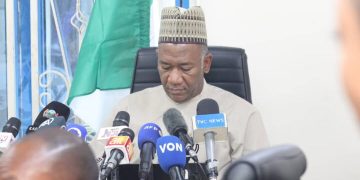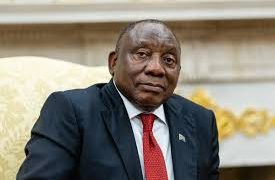Abuja, the Federal Capital Territory, has increasingly become a breeding ground for fraudulent estate agents and developers who operate with alarming impunity. Despite numerous complaints, many of these criminal practices go unpunished partly due to the failure of relevant authorities to protect buyers, and partly because many victims do not report these atrocities to the proper agencies for investigation. This lack of accountability has emboldened scammers who prey on unsuspecting Nigerians seeking decent housing.
Today, social media is one of the biggest tools used by these fraudulent agents. They advertise properties many privately owned, already allocated, or completely non-existent while presenting themselves as legitimate real estate professionals. These agents frequently demand upfront payments without providing proper documentation or valid contracts. Buyers who blindly trust their assurances often end up facing financial loss and emotional distress.
These scammers are bold and audacious. Many appear highly connected, parade around Abuja in convoys of luxury cars, and project a false aura of legitimacy with the help of police escorts. Behind this glamour, however, are individuals who have perfected the art of deception, targeting people who have saved for years including retirees seeking peaceful homes for the future.
Their tactics are sophisticated. They create a false sense of urgency, pressure buyers into hasty decisions, and misrepresent the true status of properties. Some operate so-called “estates” that consist of nothing more than a fenced compound or a flashy gate no infrastructure, no development, and no verifiable track record. Hidden charges appear after the initial payment, and victims soon realize they have fallen into the hands of hardened fraudsters.
In even more alarming cases, these scammers collaborate with insiders in certain government offices. When victims attempt to verify property documents, they sometimes receive misleading assurances that further reinforce the illusion of legitimacy. Important documents such as Deeds of Assignment, Certificates of Occupancy, and registered survey plans are often unavailable or outright fake.
As a human rights advocate, it is my duty to expose these criminals who have pushed many victims into untimely death through stress, financial ruin, and emotional trauma. A recent incident reflects the scale of the problem in Abuja. A respected officer of the Nigeria Customs Service, who retired last year after 35 years of dedicated service, and my friend of almost three decades, a complete gentleman who retired with distinction, fell victim to one of these fake developers. Believing he was investing in a legitimate estate in Wuye, FCT, complete with enclosure and security, he paid for land that turned out to be a scam a single plot sold to multiple individuals. He was shocked to find someone else already building on the land he had paid for.
What should have been a peaceful retirement turned into a nightmare. Instead of enjoying his well-earned rest after serving the nation, he was forced to shuttle between authorities, seeking justice and struggling to recover his hard-earned savings from these heartless agents of destruction. If not for the swift intervention of the Nigerian Police Force, which stepped in and arrested the culprits, he would have lost everything. His case is just one of hundreds across Abuja that have been swept under the rug without justice.
The high demand for housing in the FCT makes people vulnerable. Desperation and urgency push buyers into making payments without proper vetting. Red flags include
Requests for upfront payment without proper legal documentation Refusal to allow verification of documents such as the C of O, survey plan, or Deed of Assignment
Fake or exaggerated claims of government approvals
“Estates” with only gates and fences but no real development
High-pressure sales tactics demanding rushed decisions
Hidden charges introduced after the initial payment
No completed projects or verifiable track record
Sudden disappearance, silence, or blocked calls after payment
To avoid falling victim, always engage a qualified lawyer and a registered surveyor before paying for any land or property. Proper due diligence, both physical and legal, remains your strongest defence. If you have already fallen victim, report immediately to the police, the anti-fraud unit, and file a petition against the developer or agent without delay.
This epidemic of fraudulent estate agents and developers demands urgent government intervention. The Minister of the Federal Capital Territory must take decisive action to protect residents. Abuja is the seat of power the capital of Africa’s most populous nation. It cannot continue to serve as a playground for criminals who rob hardworking citizens of their life savings.
Stricter regulation, tighter oversight, public awareness campaigns, and dedicated task forces are necessary to shut down these fraudulent operators. Nigerians deserve transparency, accountability, and protection.
The FCT administration must rise to its responsibility to safeguard residents and restore sanity to Abuja’s real estate sector. Every day of inaction allows more people to fall victim. The time to act is now.
Daniel Nduka Okonkwo is a seasoned writer, human rights advocate, and public affairs analyst, widely recognized for his incisive commentary on governance, justice, and social equity. Through his platform, Profiles International Human Rights Advocate, he consistently illuminates critical social and political issues in Nigeria and beyond, championing accountability, transparency, and reform.
With a portfolio of more than 1,000 published articles available on Google, Okonkwo’s work has appeared in prominent outlets such as Sahara Reporters and other leading media platforms. Beyond journalism, he is an accomplished transcriptionist and experienced petition writer known for precision and persuasive communication. He also works as a ghostwriter and freelance journalist, contributing to diverse projects that promote truth, integrity, and the protection of human rights.









































